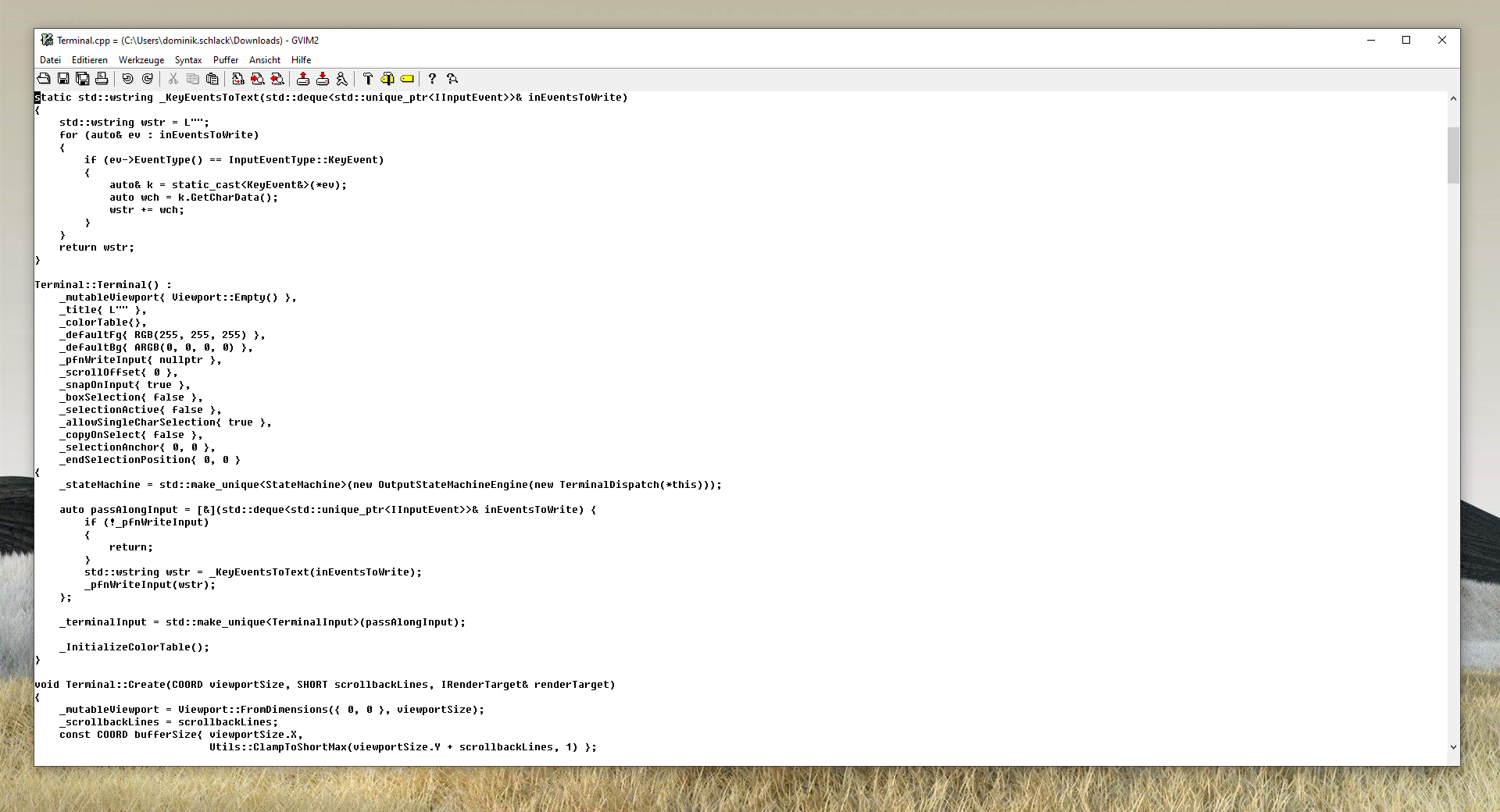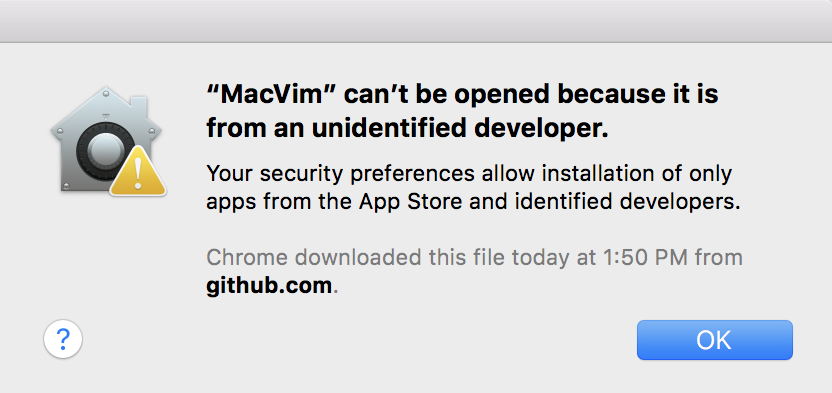

- Macvim startup settings font how to#
- Macvim startup settings font update#
- Macvim startup settings font full#
- Macvim startup settings font windows 10#
- Macvim startup settings font code#
If a missing font is part of a style, you can update the font in that style by changing its style definition. You can choose Type > Find Font to find and change missing fonts. If a TrueType font is installed and the document contains a Type 1 (T1) version of the same font, the font is displayed as missing. Missing fonts for which others have been substituted will appear at the top of the Type > Font menu in a section marked “Missing Fonts.” By default, text formatted with missing fonts appears in pink highlighting. When this happens, you can select the text and apply any other available font. InCopy substitutes missing fonts with an available font. If you select text that uses a missing font, the Character panel or Control panel indicates that this font is missing by displaying it in brackets in the font style pop‑up menu. Once you complete the steps, the system will need to be restarted to finish the process.When you open or place documents that include fonts not installed on your system, an alert message appears, indicating which fonts are missing. Select the restore point you created before applying the settings. Search for Create a restore point and select the top result to open the app.However, use this option as a last resort, since depending on when you are restoring the system, the feature may also undo other system changes you may have configured after the restore point was created. Undo settings with Restore pointĪlternatively, you could also use a previous restore point created before modifying the font settings to undo the changes.
Macvim startup settings font windows 10#

To restore the default font settings on Windows 10, use these steps: If you change your mind, you can always restore the previous settings using the Registry or using a restore point.
Macvim startup settings font how to#
How to restore default system font on Windows 10 Once you complete the steps, the new font should be available throughout the desktop visual elements, including File Explorer, message box, taskbar, and apps that use the system default font settings.Īlthough you can select from a lot of different fonts, it is recommended to choose a style that is easy to understand since fonts like Webdings or Wingdings use symbols, and they can cause issues to the installation. Right-click the newly created ".reg" file and select the Merge option.
Macvim startup settings font code#
Search for Notepad and click the top result to open the text editor.Ĭopy and paste the following Registry code onto the file: Windows Registry Editor Version 5.00.

Alternatively, you can create a system restore point, which will also help you revert the changes.
Macvim startup settings font full#
It's recommended to make a full backup of your PC before proceeding.

Warning: This is a friendly reminder that editing the Registry is risky and can cause irreversible damage to your installation if you don't do it correctly. To change the system font on Windows 10, use these steps:


 0 kommentar(er)
0 kommentar(er)
